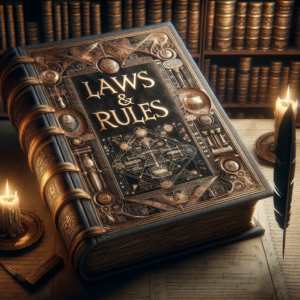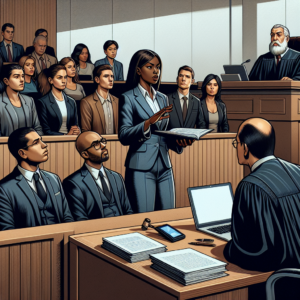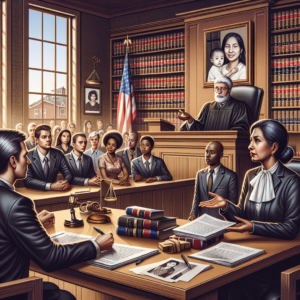Unveiling the Silent Crisis: Essential Strategies for Child Abuse Prevention

Child abuse remains one of the most pressing yet often overlooked issues facing societies worldwide. Despite growing awareness, many instances of abuse go unreported, leaving countless children vulnerable and suffering in silence. The need for comprehensive strategies to prevent child abuse has never been more urgent. This article aims to unveil the silent crisis of child abuse, exploring its scope, recognizing its signs, and emphasizing the importance of education, community engagement, legislative frameworks, and available resources in combating this pervasive issue.
Understanding the Scope of Child Abuse: A Silent Crisis Impacting Communities
Child abuse is a multifaceted issue that affects millions of children globally, transcending socioeconomic, racial, and cultural boundaries. According to the World Health Organization, an estimated 1 in 4 children experience physical abuse, while 1 in 5 girls and 1 in 13 boys are victims of sexual abuse. The repercussions of such trauma extend beyond childhood, impacting mental health, educational attainment, and social relationships well into adulthood. Communities bear the brunt of this crisis, as the cycle of abuse often perpetuates itself, leading to increased crime rates, substance abuse, and mental health issues. Understanding the full scope of child abuse is crucial for mobilizing resources and implementing effective prevention strategies.
Recognizing the Signs: How to Identify Potential Child Abuse Situations
Identifying potential child abuse situations is a critical step in prevention efforts. Signs of abuse can manifest in various forms, including physical indicators such as unexplained bruises or injuries, as well as behavioral changes like withdrawal, aggression, or sudden changes in academic performance. Caregivers and educators must be vigilant in recognizing these signs, as children may not always verbalize their experiences. Additionally, understanding the context surrounding a child’s behavior is essential; for instance, a child who exhibits fear of going home may be experiencing abuse. Training programs aimed at equipping adults with the knowledge to recognize these signs can significantly enhance early intervention efforts.
The Role of Education: Empowering Children and Caregivers Against Abuse
Education plays a pivotal role in empowering both children and caregivers to recognize and prevent abuse. Comprehensive educational programs that teach children about their rights, personal boundaries, and safe versus unsafe touch can instill a sense of agency and awareness. Furthermore, equipping caregivers with knowledge about the dynamics of abuse, including its signs and the importance of open communication, fosters a protective environment for children. Schools and community organizations should collaborate to implement age-appropriate curricula that address these topics, ensuring that both children and adults are informed and prepared to act if they suspect abuse.
Community Engagement: Building Support Networks for Child Abuse Prevention
Community engagement is essential in building robust support networks that can effectively address child abuse. Local organizations, faith-based groups, and neighborhood associations can play a vital role in creating a culture of vigilance and support. Initiatives such as community workshops, awareness campaigns, and support groups can foster open dialogue about child abuse, reducing stigma and encouraging reporting. Furthermore, engaging local law enforcement and child protective services in these efforts can enhance trust and cooperation between families and authorities, ensuring that children have access to the help they need. By fostering a sense of community responsibility, we can create a safer environment for children.
Legislative Framework: Advocating for Stronger Child Protection Laws
A strong legislative framework is crucial for the effective prevention and prosecution of child abuse. Advocating for stronger child protection laws can lead to more comprehensive reporting requirements, increased funding for child welfare services, and harsher penalties for offenders. Policymakers must prioritize the establishment of laws that not only protect children but also provide resources for prevention and intervention programs. Additionally, fostering collaboration between governmental and non-governmental organizations can enhance the effectiveness of these laws. By holding abusers accountable and ensuring that protective measures are in place, we can create a safer environment for all children.
Resources and Support: Essential Tools for Reporting and Addressing Abuse
Access to resources and support is vital for individuals who suspect or have experienced child abuse. National hotlines, local child protective services, and community organizations provide essential tools for reporting abuse and accessing help. It is crucial for communities to disseminate information about these resources widely, ensuring that caregivers and children know where to turn in times of crisis. Furthermore, training programs for professionals who work with children—such as teachers, healthcare providers, and social workers—can equip them with the skills needed to respond appropriately to disclosures of abuse. By ensuring that robust support systems are in place, we can facilitate timely intervention and healing for affected children.
The silent crisis of child abuse demands immediate attention and action from all sectors of society. By understanding the scope of the issue, recognizing its signs, and implementing essential strategies such as education, community engagement, legislative advocacy, and resource availability, we can work towards a future where children are safe, supported, and empowered. It is imperative that we come together as a community to break the silence surrounding child abuse and foster an environment where every child can thrive without fear. Only through collective effort can we hope to eradicate this pervasive issue and protect the most vulnerable members of our society.













